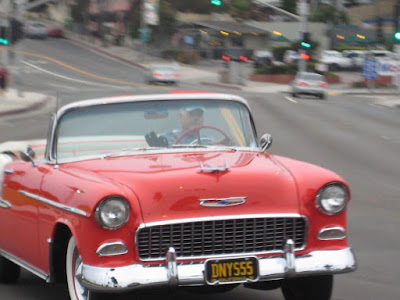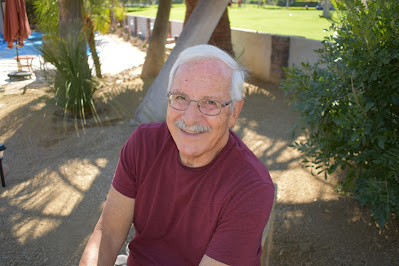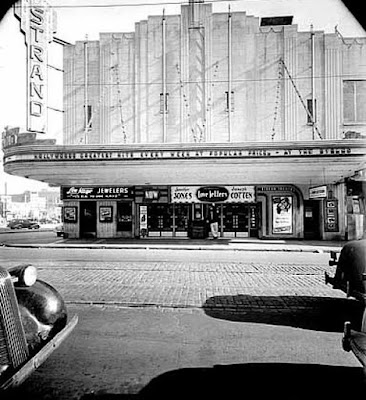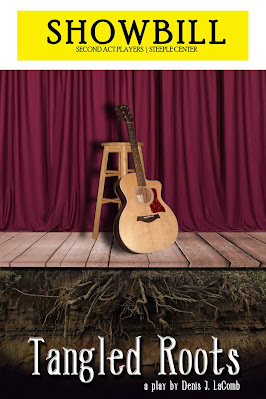It
would seem I’ve always been a bit slow on the uptake. Back in the day, I was
lucky enough to get into Cretin High School, slipping ahead of 370 other young
men, to form the rear guard of my class. I started St. Thomas College then
dropped out. I flunked out of the University of Minnesota after two quarters. I
survived the US Army, living in Europe and several false starts before finding
my footing in public television and video marketing.
Nevertheless,
all during that formidable baking/brewing period of my life, it was the White
Rabbit that remained ever elusive. I guess both Alice and I saw it as a
metaphor for some vapid mirror image of what I could or should or might become.
I saw myself as different from others. Yet I couldn’t name or pin down that
lower third title of who I was or what I could become. I instinctively knew
there was a life out there for me. I just hadn’t found it yet. The White Rabbit
remained a mysterious myopic vision bounding over the next horizon.
It
took me a lifetime to get where I am today. I was never into sports, games or
social events. I was content to be by myself as I was a lot of the time growing
up. I had few friends and fewer intimates. As a kid with no male role models to
follow, it was hard to throw off the inhibitions, constrictions, and
limitations of a sterile single parent household.
Adventurous
I never was, unless you take into account a few strange benchmarks like raising
a wild cottontail rabbit in grade school, cheerleading at an all-male high
school, getting a library card in Denmark, and skinny-dipping in Costa Rica.
One
redeeming factor is that I’ve always had a vivid imagination born out of either
desperation or boredom; I’m not sure which.
I
was deeply affected by the manufactured silliness of movies and television.
Rhonda Fleming was my first love and I had a crush on her for years.
 |
| Mick Hawkins and me (photo courtesy of Jerry Hoffman) |
Mickey,
my grade school buddy, introduced me to this radical idea that you could
actually get and read a book without having to pay for it. It was called a
library, and in fourth grade, Mickey let me follow him to a local library to
get my very own library card. I was in seventh heaven. The first book I read
was ‘The Enemy below;’ about World War Two mine-sweepers. That was quickly
followed by serial books on Tarzan, The Hardy Boys, etc.
I
sketched a lot of pictures of characters I’d seen in the movies and tried to
re-create scenes from them. Maybe, I thought maybe I could become an artist or
an illustrator. It was not to be.
Sir
Lancelot, John Wayne, and Tarzan were some of my favorite subjects. I made sure
there was always a comic book to accompany each character.
I
was fascinated with the western character called Paladin from the television series:
‘Have Gun, Will Travel.’ My intention was to write a screenplay for the series
but I never did.
During
my ‘lost years,’ I got into poetry (three binders worth) and tried to
picture-paint with words some of the events, stages and emotions I was going
through at the time. Public television gave me some wonderful opportunities to
be creative in my directing skills. Along the way, a few failed relationships
gave me plenty of fodder to plant into words and thoughts, sentences and
phrases.
I
tried my hand at photography when we lived in Chattanooga, Tennessee.
After
we moved to Maryland, I used my trusty L.C. Smith typewriter to write two
westerns in 1973 and 1974. Then I casually put them aside and waited another
forty years before rewriting and self- publishing both of them.
Finally,
in 2007, after a lifetime of skirting the writing world, I began to write full
time in lieu of retirement. Numerous books, plays, screenplays and blogs later,
I am now fully engaged as a student in the craft of writing.
I
haven’t caught the White Rabbit yet and doubt I ever will. It’s an ongoing
journey of self-discovery with new horizons constantly popping up in front of
me. But that’s a good thing.
It
gives me something to do.




















































